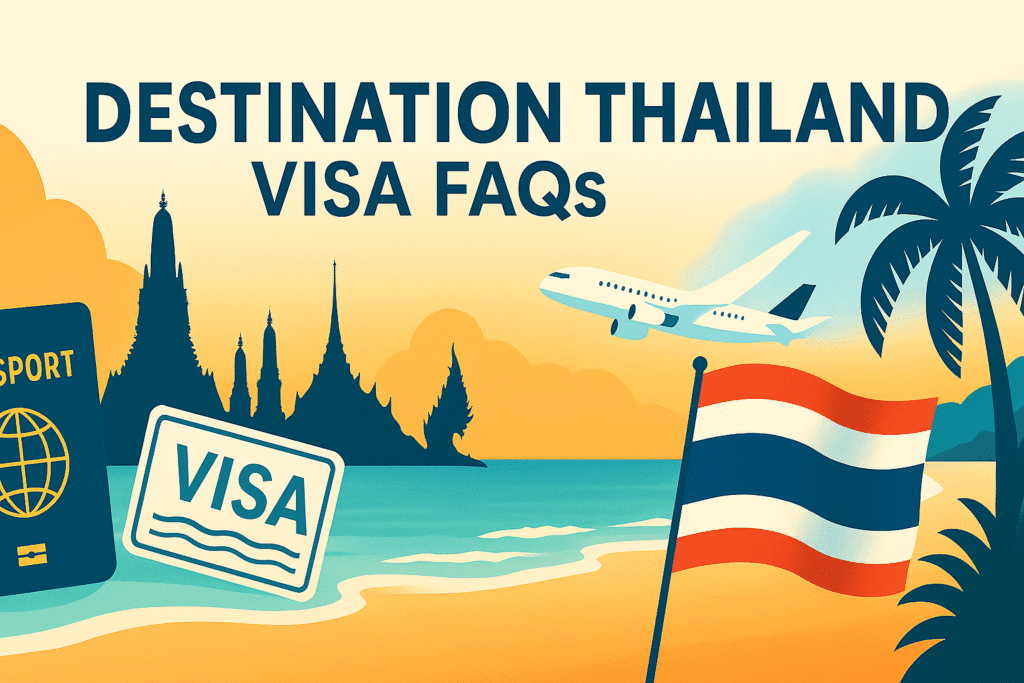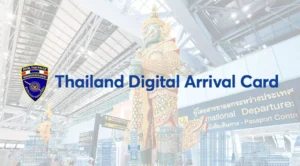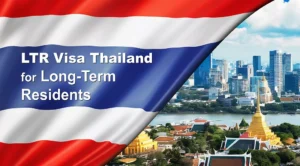DTV Visa Thailand FAQs answer the questions you have about this new option to spend an extended period in Thailand while working remotely or enjoying the country’s lifestyle. Since it’s still new, we receive plenty of questions from clients trying to understand how it works. To help clear up some of the common concerns, our team at Siam Legal has prepared this FAQ guide. Feel free to visit our main information page for a full overview of the DTV Visa Thailand.
Do the proof of funds (500,000 THB) need to remain available and in my bank account at all times? If so, when do they check this?
The proof of funds is only checked if you apply for a 180-day in-country extension at the immigration office.
I leave the country every 90 days for holidays or similar. Do I need to renew or repay the visa fee at any point?
The visa is valid for 5 years. You don’t need to renew it or pay any additional visa fees during that time. However, if you stay in Thailand for 90 consecutive days, you must file a 90-day report at the immigration office where you stay. This report is free of charge.
I got a visa and my passport is about to expire in a year. Will I have to resubmit the documents to transfer the visa to the new passport?
If your passport is about to expire but your visa is still valid, you cannot transfer the visa to your new passport.
Instead, you’ll need to carry both your old passport (with the valid visa) and your new passport when you travel. Immigration officers will need to see the visa in the old passport alongside your new, valid travel document.
Just make sure both passports are presented together each time you enter or leave the country.
Can you travel to a different country after submitting your DTV application, while it’s still being processed?
You should remain in the same country where you submitted your DTV application until the processing is complete. The Thai Embassy or Consulate may request additional documents, additional proof of current location, or even an in-person interview. So it’s important that you’re available and able to respond promptly from within that country.
Do I need to file a 90-day report as a DTV holder?
Yes, 90-day reporting is required for all foreign nationals residing in Thailand long-term, including DTV holders. It’s a legal requirement under Thai immigration law to report your current address every 90 days to Thai Immigration while you remain in the country.
What happens to your tax situation if you stay longer than 180 days with that extension? Do you have to pay Thai taxes?
If you stay in Thailand for more than 180 days within a calendar year, even with the extension, you will be considered a Thai tax resident. This will require you to declare global income and potentially pay taxes in Thailand, depending on your personal circumstances and any applicable tax treaties.
For the DTV visa with the 180-day extension, do I need to submit the 500,000 THB financial documents again?
You need all the documents you used for the visa application, but with updated versions showing new dates, or you can take a weekend trip to Kuala Lumpur, Luang Prabang, or another nearby city and return to get a fresh 180-day stamp without needing to present any documentation.
If I enter on a DTV and approach 180 days, then leave Thailand, can I return a week later? Is there any minimum requirement for how long I need to stay outside of Thailand once the 180 days are over?
There is no official requirement for how long you must stay outside of Thailand on the DTV. Many people leave and return the same day or the next day without any issues.
How long must the 500,000 THB be sitting in my account to apply for the DTV?
At least 3 months. Some embassies require the minimum required funds to be maintained for at least 3 months. However, some embassies accept bank statements where the required funds were present for less than 3 months.
If you’re called for an interview, what questions might they ask, especially if you’re applying as a freelancer?
You will be asked to explain the nature of your remote work and clients. And you may be asked to show your current bank balance for review and verification.
Can I change from a marriage visa to the DTV?
Yes, but your current marriage visa would need to be canceled first. After cancellation, you would need to apply for the DTV from outside of Thailand.
Would it be a problem if the bank I use for proof of funds is in one country, while the account I get paid into is in another and under a different address?
Generally, no — this shouldn’t be a problem as long as your account details are clear and legible, and the documents support your overall financial position.
However, requirements can vary slightly depending on the embassy or consulate where you’re applying. Some may ask for consistency between your income and proof of funds, while others may be more flexible.
I heard that some requirements are different from embassy to embassy, is that true? I have seen that some embassies require a 6 month bank statement of the 500k baht, others only the 500k baht without mentioning the 6 months history. And I think other things may vary as well?
Yes, that’s correct — requirements can vary slightly between Thai embassies and consulates, even for the same visa type like the Destination Thailand Visa (DTV).
For example, while the main financial requirement is to show at least 500,000 THB (or equivalent) in savings, some embassies require a 6-month bank statement, while others may accept just 3 months. In some cases, they may also require that the funds have been consistently maintained over the specified period, rather than being a recent lump sum deposit.
DTV Soft Power FAQs
Has anyone applied for the DTV Soft Power category with something other than Muay Thai or cooking?
Yes, some applicants have applied under categories such as Sports Training, Marathons, and Medical appointments.
Can I change the Muay Thai gym associated with my DTV?
Unfortunately, once your DTV application is submitted and approved, the Muay Thai gym listed cannot be changed. However, if you choose to apply for an extension within Thailand, you may present a different gym at that time.
DTV Workcation FAQs
What happens if one no longer has employment after the initial approval of the DTV visa?
If you lose your employment after the initial approval of the DTV visa, you can still keep your visa and complete your current 180-day stay without issue.
However, if you plan to extend your stay within Thailand beyond the 180 days, you will need to provide updated proof of remote employment at the time of extension.
What are the differences between workcation and soft power? If I choose soft power, I don’t need to prove employment contracts. I just need to sign up for a cooking class for a few hours a week, for example, and I can work the rest of the time.
Yes, that’s mostly correct. The Workcation category is for remote workers and freelancers, and typically requires proof of employment or ongoing freelance work (e.g., contracts, invoices, and financial records).
In contrast, the Soft Power category focuses on cultural activities like Muay Thai, Thai cooking, etc. If you choose this category, you don’t need to show work-related documents — just proof of enrollment in an eligible program.
You can still work online for overseas clients while on a Soft Power visa, as long as your income isn’t from Thai sources.
I’m taking a sabbatical to work on my app in Thailand, and I want to apply for a DTV Workcation visa. I have strong work experience, academic publications, and patents. What are my chances of approval?
It depends on which embassy you apply to. You may still get approved depending on your supporting documents, though it is advisable to have proof of ongoing remote income when applying for a DTV Workcation.
DTV Dependent FAQs
If my visa is approved and then I apply for a dependent visa for my child—do I need to show another 500,000 THB (so 1 million total), or is the original amount enough?
Yes, the embassy requires a separate 500,000 THB for each applicant. So you’ll need to show 1 million THB total: 500,000 THB for yourself and 500,000 THB for your child.
Is it correct that as the spouse of a DTV you only need to show your husband’s bank account with 500k baht and a letter from your husband stating that he is supporting you?
No, that’s not correct. Each applicant under the Destination Thailand Visa (DTV), including dependents such as a spouse, must meet the financial requirement of 500,000 THB individually.
Does my spouse have to have 500k in an account of their own? All of our accounts are joint. Can I submit the same proof for both of us?
If you are applying as the main applicant and your spouse is applying as a dependent, then you can submit the same financial proof as long as the bank account is joint and clearly shows both of your names.
The key is to demonstrate that the required funds are accessible to both of you. Make sure the joint account details are legible and that the total balance meets or exceeds the required amount of 1,000,000 THB.









































2 Responses
What are the differences between work action and soft power? If I choose soft power, I don’t need to prove employment contracts. I just need to sign up for a cooking class for a few hours a week, for example, and I can work the rest of the time.
Hello Olivier,
Yes, that’s correct. With the Soft Power category under the DTV, you don’t need to show proof of employment or contracts. You just need to show proof of 500,000 THB (or equivalent) in a bank account in your home country, enroll in a DTV-approved course (such as a cooking class that provides official documentation), and then apply through the Thai eVisa system in your country.